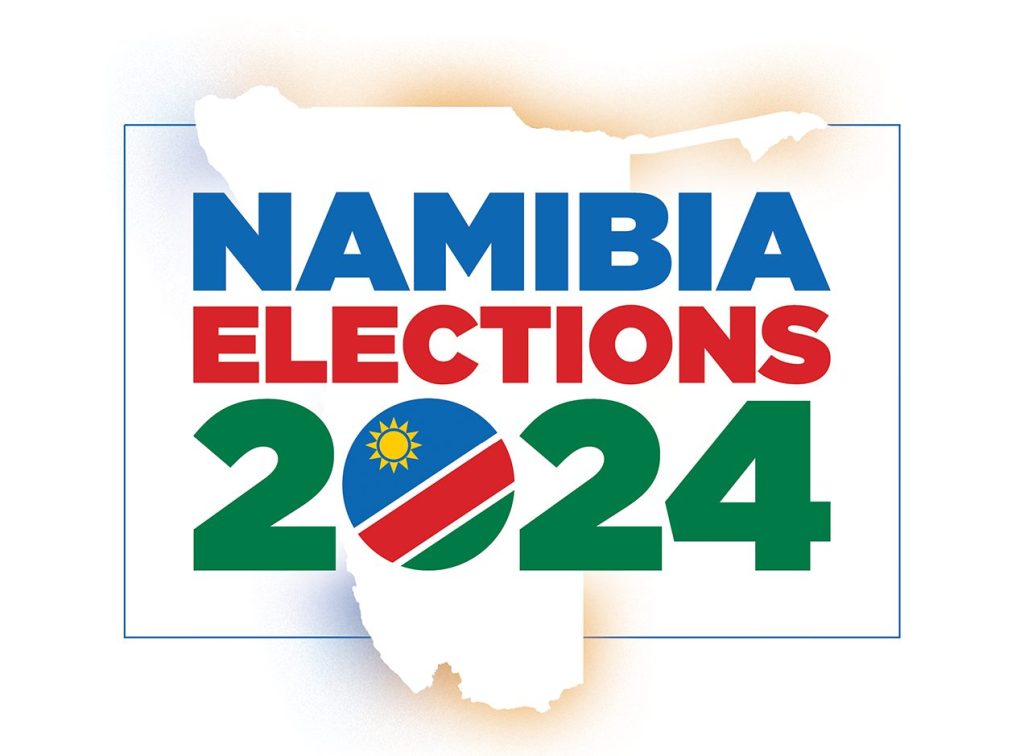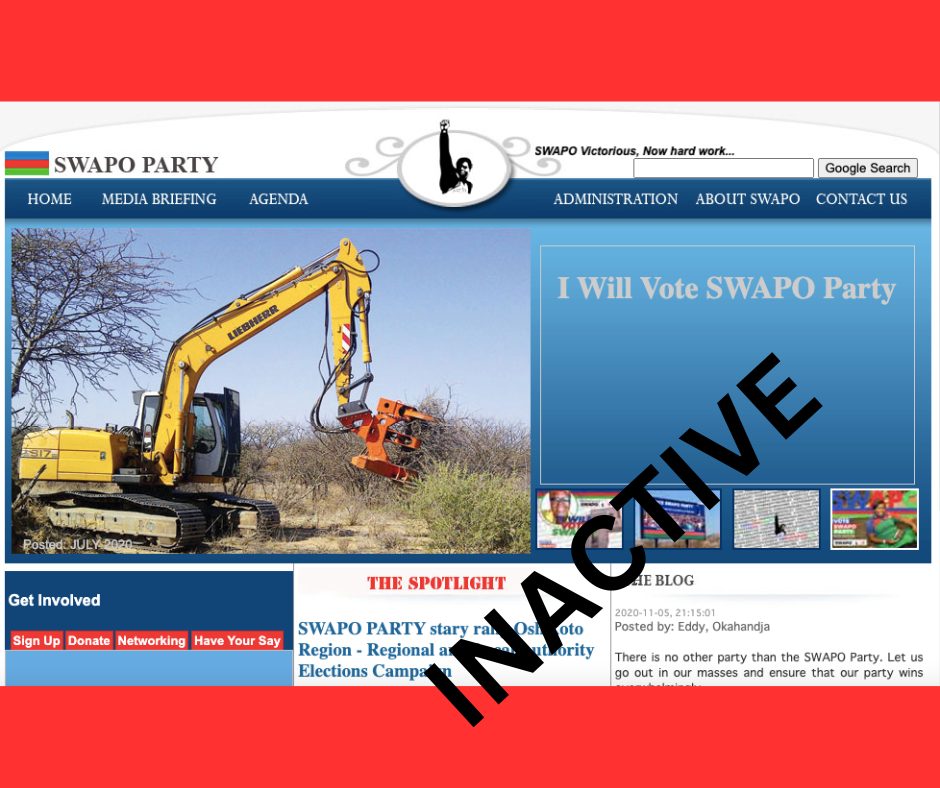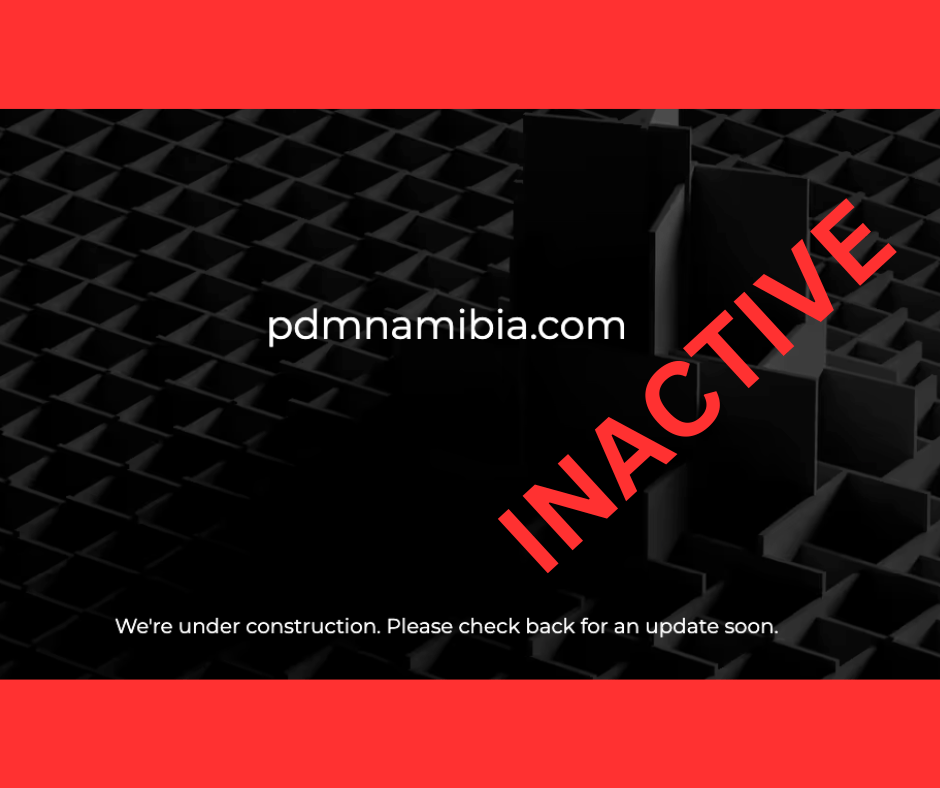IMAGE: Namibia Fact Check
Namibia’s main political parties have yet to fully embraced the internet as a space to communicate, contest and engage
A recent article published by Nature online states that a worldwide study found “that being online can have a positive effect on welfare”.
In fact, the researchers found that “Internet use might boost measures of well-being, such as life satisfaction and sense of purpose”.
However, Namibia’s main political parties do not seem to share this sense, judging by their lack of presence and purpose on the internet and social media.

This state of affairs is counter to how significant Namibians, especially young Namibians, view the internet and social media as news and information sources – Round 9 of the influential Afrobarometer survey finds that roughly 55% of Namibian respondents say they mostly or regularly get their news and information via the internet and social media.
Websites
It would be reasonable to assume that Namibia’s major political parties, with representation in parliament, would at least have a functioning, regularly updated website in 2024, with elections around the corner. That is not the case, though.
Neither the ruling Swapo Party nor the official opposition party, the Popular Democratic Movement (PDM), have functioning websites as of 15 May 2024.


The Swapo Party website seems to have gone down around mid-2021 and the domain name (swapoparty.org) now appears to be owned by an Asian online casino. The old ruling party website can still be accessed using the Internet Archive.
Other major political parties, such as the Landless People’s Movement (LPM), do have active websites, although not very engaging and with somewhat outdated content. While the National Unity Democratic Organisation (NUDO), Namibia Economic Freedom Fighters (NEFF) and United Democratic Front (UDF) also do not have websites.
The most active, engaging and updated political party website is possibly that of the new major party, the Independent Patriots for Change (IPC), which is looking to make a splash in the upcoming elections.
Speaking volumes?
Ideally, political party websites should serve as platforms for parties to promote their agenda, communicate their messages and for general information dissemination, as well as for supporter mobilisation and engagement.
The lack of operational party websites among most of Namibia’s major political parties raises questions about their levels of commitment to openness and democratic engagement and dialogue.
